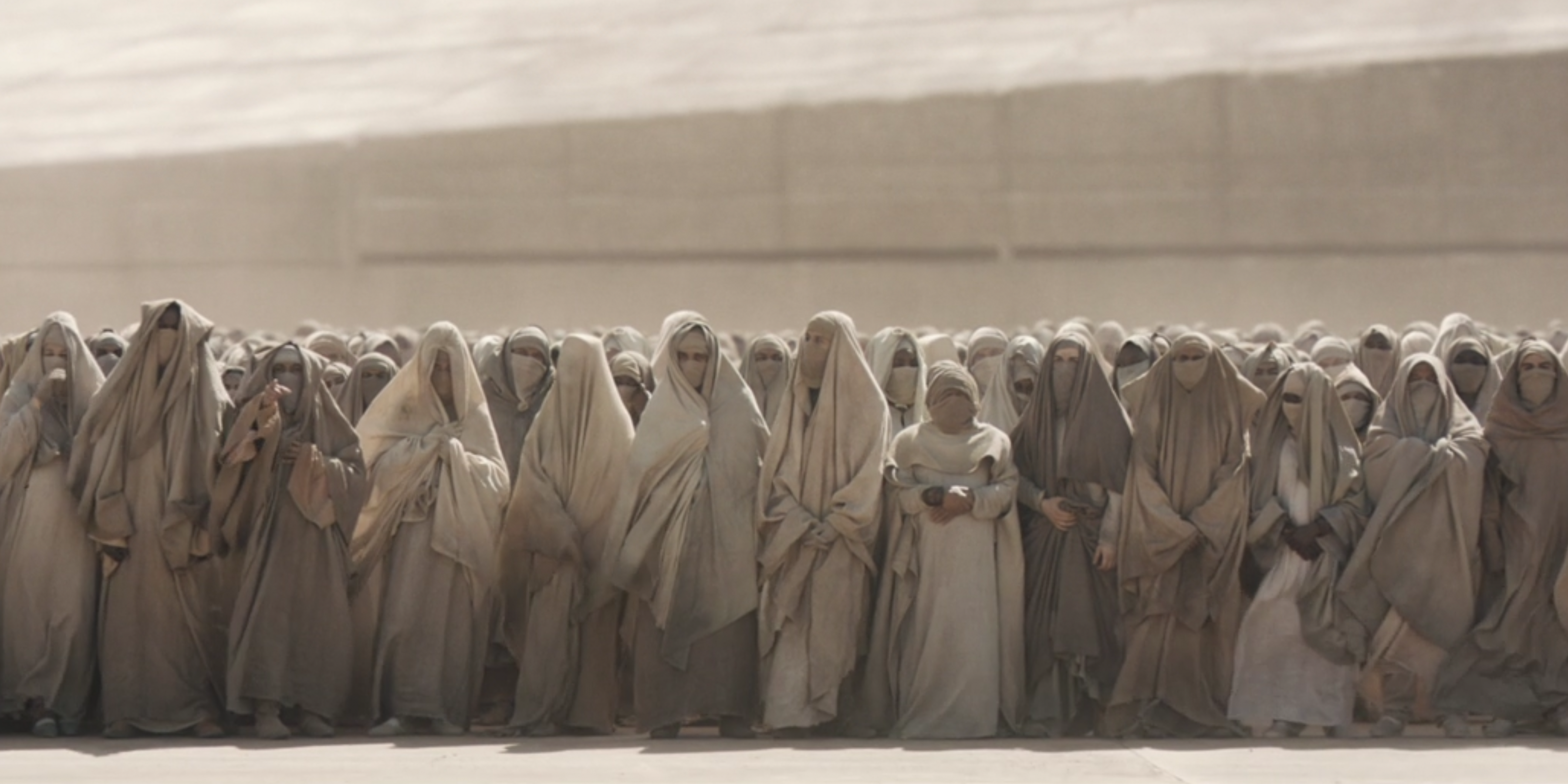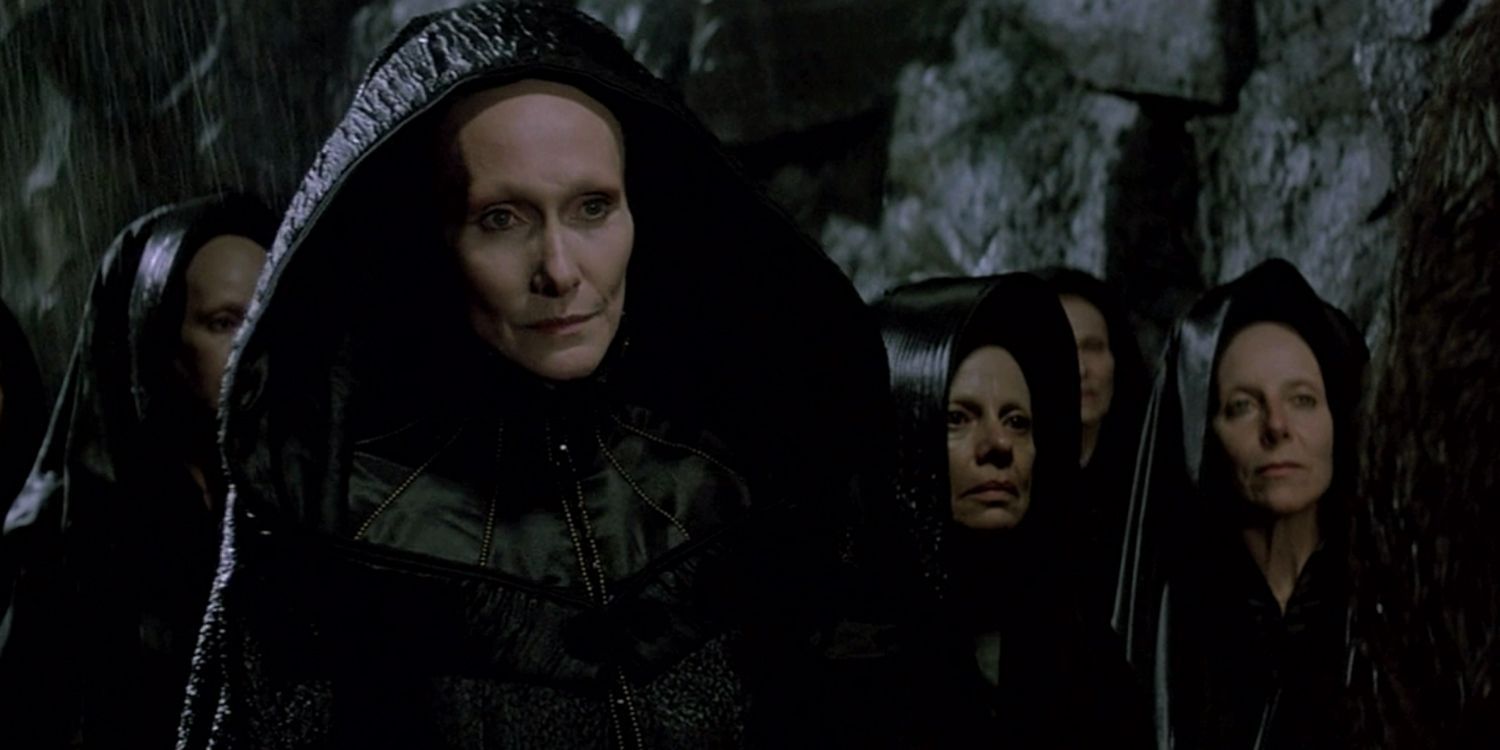
Paul Atreides is central to Dune's chosen one prophecy. The chosen one trope is common in science fiction and fantasy storytelling. However, Dune complicates the traditional approach by introducing the idea of an off-world savior, as Paul Atreides comes from another planet to lead Arrakis' indigenous Fremen. In Dune, these plots do not play out as conventionally as one would expect because the chosen one narrative is substantially complicated by other factors within the wider story.
Written in 1965 as the crowning achievement of science fiction author Frank Herbert, Dune is a much-loved novel of warring noble space houses fighting over control of the spice melange, a substance useful for both space travel and, for some people, prescience (the ability to see into the future). The plot is roughly the same between the novel and its film adaptations, even the cast of Dune's film adaptations are comparable to their fictional characters. What really separates Dune from other science fiction and fantasy stories is the complexity of its plot, and a chosen one or messiah storyline is a central thread.
Paul Atreides is the chosen one three times over: by the Bene Gesserit as their Kwisatz Haderach, by the Fremen as their Lisan al Gaib, and by his own internal struggles with visions of his future greatness. All these chosen one plots are related, connected, and not what they first appear. Dune has a universe of schemers and it's sometimes difficult to keep the Emperor's schemes separate from the House Harkonnen's plot against Atreides, and from the Bene Gesserit's machinations. It is only through others' schemes that Paul inherits his chosen one or messiah status, which as Dune plays out proves to be not fate or destiny at all, but human manipulations.

There is a prophecy among the Fremen of Arrakis (Dune) that the "Lisan al Gaib" (or, the "Voice from the Outer World") will come and lead them to terraform the Arrakian desert into a lush, green world. When House Atreides comes to Dune and Paul appears with his mother as the prophecy foretold, it starts the narrative of Paul as the chosen one on Arrakis. Denis Villeneuve's Dune leaves many answered questions, but it was very clear on one point that David Lynch's 1984 Dune glossed over: the prophecies sewn among the Fremen on Arrakis were planted there intentionally by the Bene Gesserit hundreds of years before. Paul and his mother Jessica, when they arrive on Arrakis, fulfill that manipulation. One of the biggest takeaways from David Lynch's Dune in 1984 for fans of Herbert's book was that it erased the notion that Paul was filling a messianic role intentionally determined by others.

Somewhere between a church and a fraternity, the Bene Gesserit are a sisterhood who use the spice melange (found only on Arrakis, or "Dune") to have visions of the future, or "prescience". The spice is vital to this process, and the spice is important to all of Dune. Reverend mothers of the Bene Gesserit undergo a ceremony called "spice agony" where they intake a large amount of spice and gain the ability to connect with the memories of all their female ancestors. Not all Bene Gesserit survive the ceremony, and central to the plot of Dune is that no man has ever survived. Men are not a part of the Bene Gesserit, but the Bene Gesserit do have a plan to include exactly one male member among their order: the "Kwisatz Haderach".
The Kwisatz Haderach is treated like a prophecy but it is just the name of the result of a generations-long Bene Gesserit breeding program to create a male human capable of surviving the spice agony and accessing all the memories of his ancestors, both male and female. When he survives the spice agony and becomes the Kwisatz Haderach, Paul's powers and abilities are a little different than expected, even among Dune adaptations. From the spice, the Bene Gesserit have limited prescience due to spice ingestion, but the Kwisatz Haderach is supposedly capable of seeing far into the future and therefore guiding the Bene Gesserit on a path to glory. However, since the messiah status of the Kwisatz Haderach was self-inflicted on the part of the Bene Gesserit, Paul becoming the Kwisatz Haderach is the culmination of a project, not a prophecy.

The most damning way in which Paul is a chosen one is by his own visions. Paul has visions of loving a Fremen woman Chani, and also of leading the Fremen in a war across the universe. However, these are involuntary. Paul's frequent dreams and visions are part of the prescience gift given to him by his genes, and the result of selective breeding in the Kwisatz Haderach breeding program. This natural predilection to prescience in Paul is further amplified by contact with the spice, and the Bene Gesserit training his mother Jessica gave him. Paul does not even get to be the chosen one by his own visions, as later in the Dune books Paul Atreides rejects the mantle of being the Kwisatz Haderach (which he had been using to his advantage), rejects the golden path, and blinds himself to break the hold his prophetic visions have over him. Ultimately Paul's so-called destiny—even what he foretold for himself—is never fulfilled.
Dune is a foundational science fiction text but does not fall into the same trappings that many science fiction and fantasy stories embrace with their chosen one and messiah narratives. Filmmakers themselves can be guilty of feeding into these tropes with Dune adaptations, like Paul seeing a desert mouse repeatedly in Villeneuve's Dune, narratively hinting at the name he would take under the Fremen. Worse still was when David Lynch missed the point entirely to have Paul summon forth rain with a booming voice as the climax to 1984's Dune, making Paul the chosen one truly. In Herbert's books Paul repeatedly admitted that the prophecies were all a lie of which he took advantage; he never believed he was a chosen one or messiah. Even if fed by film-makers, the chosen one narrative in Dune is false, and fails at any rate. There is no true chosen one in Dune; instead, it was all merely a Bene Gesserit plot.
from ScreenRant - Feed https://ift.tt/3pNcgau

0 Comments